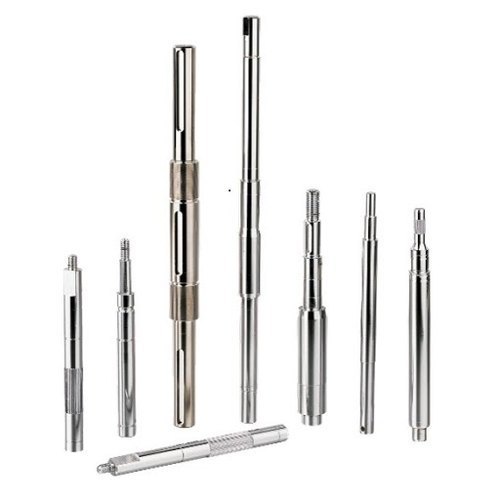In fluid handling and pumping systems, stainless steel pump shafts have emerged as a vital component that ensures various industrial processes' efficiency, reliability, and longevity. These robust and corrosion-resistant shafts are critical in transmitting power from the motor to the impeller, making them an indispensable part of any high-performance pumping application. This article will delve into the key features, advantages, and applications of stainless steel pump shafts.
Key Features of Stainless Steel Pump Shafts
Corrosion Resistance: One of the primary advantages of stainless steel pump shafts is their exceptional corrosion resistance. Stainless steel alloys, such as 316 and 304, are composed of chromium and other elements, which form a passive oxide layer on the surface, protecting the shaft from rust and corrosive environments. This corrosion resistance ensures prolonged service life and reduces maintenance costs.
High Strength: SS pump shafts are known for their impressive strength-to-weight ratio. This characteristic allows them to handle high loads and endure mechanical stresses without compromising performance. The strength of these shafts is crucial in applications involving heavy-duty pumps and systems operating under extreme conditions.
Temperature Resistance: SS pump shafts exhibit excellent temperature resistance, making them suitable for handling hot and cold liquids. This feature ensures stable operation, even in environments with varying temperatures.
Machinability: SS pump shafts are relatively easy to machine and fabricate, allowing manufacturers to produce custom shafts tailored to specific pumping system requirements. This versatility in design contributes to seamless integration with various pumps and motors.
Advantages of Stainless Steel Pump Shafts
Longevity: SS pump shafts are built to last. Their resistance to corrosion, wear, and fatigue ensures prolonged service life and minimal downtime, resulting in cost savings and increased productivity.
Reduced Maintenance: Maintenance requirements are significantly reduced since these shafts are highly resistant to corrosion and wear. This advantage is particularly valuable in applications where regular maintenance is challenging or costly.
Hygienic Applications: Stainless steel is widely used in industries that demand high hygiene standards, such as food and pharmaceuticals. SS pump shafts are ideal for such applications, as they can withstand aggressive cleaning agents and maintain a sanitary pumping environment.
Applications of Stainless Steel Pump Shafts
Chemical Processing: In the chemical industry, where handling aggressive and corrosive chemicals is common, SS pump shafts ensure safe and reliable fluid transfer.
Water and Wastewater Treatment: Municipal water treatment plants and industrial wastewater facilities benefit from SS pump shafts due to their resistance to corrosion from various waterborne contaminants.
Food and Beverage: SS pump shafts are used in the food and beverage industry to maintain the integrity of the products while complying with strict hygiene standards.
Oil and Gas: The oil and gas sector relies on SS pump shafts to withstand the harsh drilling, refining, and transportation conditions.
Conclusion
Stainless steel pump shafts have proven indispensable in various industries, ensuring efficient and reliable fluid handling in challenging environments. Their corrosion, high strength, and temperature resistance contribute to extended service life and reduced maintenance costs. As technology and materials continue to advance, SS pump shafts will remain at the forefront of modern pumping systems, enabling industries to confidently meet their production demands.





Comments